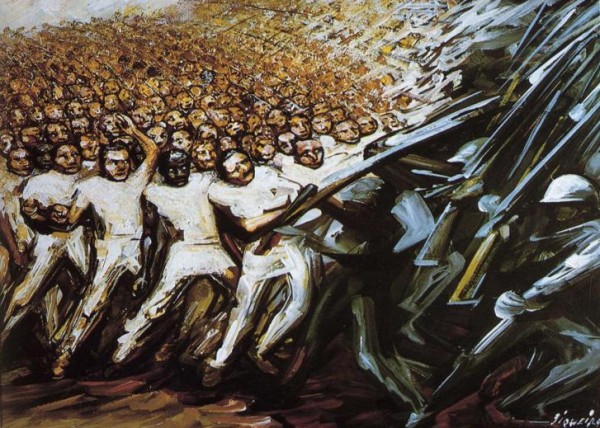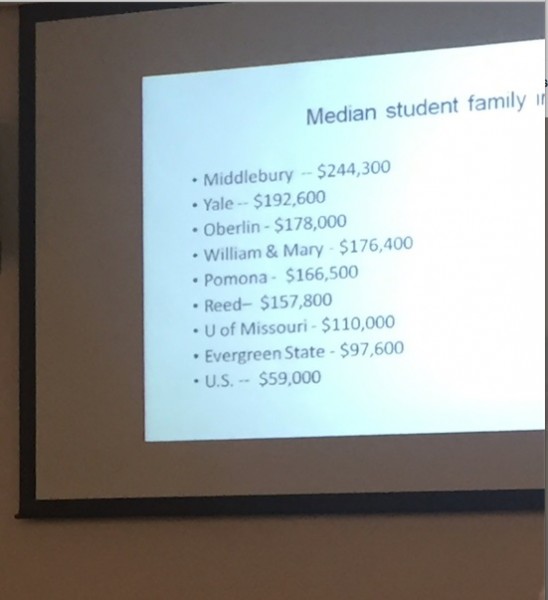
Eclogue III: Catching the Ball Makes the Catcher Feel Good
…But if “catching
the ball makes
the catcher feel good,” what
makes any of this history?


…But if “catching
the ball makes
the catcher feel good,” what
makes any of this history?

This is why some of us have been arguing that identity politics is not an alternative to class politics but a form of it: it’s the politics of an upper class that has no problem with seeing people left behind as long as they haven’t been left behind because of their race or sex. And (this is at least one of the things that Marx meant by ideology) it’s promulgated not only by people who understand themselves as advocates of capital but by many who don’t.

To lay out, as clearly and as programmatically as we could, the reasons why despite protestations to the contrary, antiracism, understood as insisting on the symmetry of fighting discrimination and fighting exploitation, suppresses the development of a working class politics rather than offering a road to it. To make this point, the essays printed here, perhaps a little more insistently than our previous responses to critics, attend to the way that antiracism is an expression of the class position of those of us who produce the bulk of the commentary on injustice, and who routinely confront race and gender disparities in our everyday lives.

There is, finally, one more reason why only a unified front of Old and New Left may be successful in countering both neoliberalism and populism within parliamentary politics. An important—I’d say even the largest—part of progressive political mobilization is nowadays done by women. At least that is the situation in Poland. It is obvious that women would not give up women’s causes and fight just for redistribution under the banners of the Old Left. We do not need, however, to treat this as a limitation or predicament. As a matter of fact, the women’s struggle is undoubtedly the biggest and the most important single positive factor in contemporary Polish politics, a fact that was very well epitomized in autumn 2016 by the so called Black March and women’s strike in opposition to the possibility of further restrictions on a Polish abortion law that is already one of the most restrictive in the EU.

That individual experience is what is at stake in an analysis like Lee’s and in projects like the Multinode Metagame and the Opsroom installation means that they are always different, always changing, always occasioning new “meanings.” This is the polysemic, and the polysemic is not the opposition, but the alibi of neoliberalism. It provides cover for exploitation, the glitter of a thousand stars to transfix the thousands of victims while their pockets are being picked.

Deposit doesn’t mean cash. I mean the layer of ash
Distributed equally on both my palms.

Largely because of the challenge posed by the alternative political vision that Sanders advanced and the subsequent struggle over how to interpret the meanings of Trump’s victory, the 2016 election and its aftermath have thrown into relief the extent to which antiracism, and other formulations of politics based on ascriptive identities, are not simply alternatives to a (working) class politics, as Clinton’s cheesy put-down during the campaign implied. What is typically called identity politics reflects the perspective of a different class, the professional and managerial strata who are relatively insulated from the negative impacts of the four decades long regime of regressive redistribution and better positioned to take advantage of the opportunity structures it opens. That perspective suggests a reason many high-profile antiracists have become so vehement in their opposition to a politics centered on downward economic redistribution.

Today, race performs the function of suppressing working-class politics in the interests of both white and black political elites who are equally committed to capitalist class priorities as defining the boundary of political possibility.

In recent years, political debates over American crime policy have become centered on whether prisons should aim to rehabilitate rather than punish offenders. While rehabilitative discourse appears to be a progressive alternative to punitive politics, I argue that rehabilitative ideology is built on theoretical premises that justify punitive politics. By conceptualizing criminality within individualistic and deterministic frameworks, the rehabilitative ideal of American criminal justice depicts crime as a function of individual-level faults rather than as symptoms of the deeper social and political inequalities that shape the class profile of the prison population. When criminality is viewed as a function of defects and deficiencies entirely rooted in the person, criminality can only be cured through individual level responses rather than more systematic structural reform.